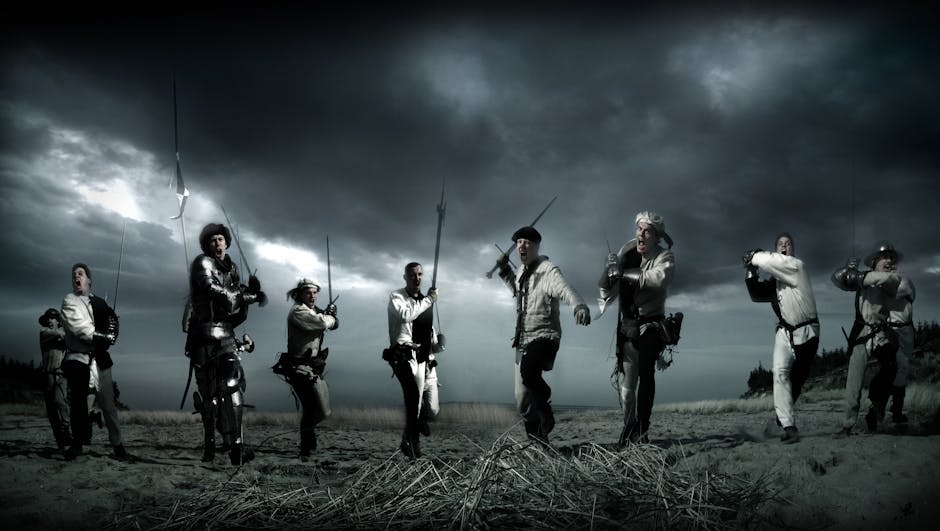The relentless march of humanity through time has been profoundly influenced by conflict. From the earliest skirmishes to the modern global theatre, warfare has acted as a powerful catalyst, reshaping societies, driving technological innovation, and forging the very fabric of human history. This examination delves into the multifaceted impact of warfare, exploring its role in shaping political structures, cultural development, economic systems, and ultimately, the human experience itself.
Primitive Struggles and Early Adaptations:
The origins of warfare are intertwined with the dawn of organised human societies. While precise details remain elusive, archaeological evidence suggests that conflicts, albeit on a relatively small scale, were likely present in early human communities. These struggles weren’t necessarily about territory or resources; social status, group identity, and access to vital resources could have served as potent motivations. The earliest weapons, crude tools sharpened for use in combat, point to a fundamental need to protect one’s interests and possessions. This early form of conflict was instrumental in driving evolutionary pressures, favouring individuals and groups with heightened aggression and developed strategies for self-defence. Additionally, a sense of collective identity often developed in response to external threats, unifying groups and facilitating the development of rudimentary social hierarchies.
The Rise of Empires and Warfare’s Engine:
As societies grew more complex, so too did the nature of warfare. The emergence of empires marked a significant turning point, transforming conflict from localised skirmishes into large-scale, organised campaigns. Consider ancient Mesopotamia; the constant struggle for fertile land and control over crucial trade routes led to the rise and fall of empires. From the Assyrian conquests to the Babylonian resurgence, these conflicts shaped the development of political institutions, sophisticated military organisation, and elaborate systems of taxation to support these endeavours. The very concept of statehood was often forged in the crucible of war. These conflicts, in turn, fuelled the demand for new weaponry and tactics, fostering progress in metallurgy and military strategy. Examining the intricate warfare techniques of the Greeks, for instance, reveals a rich tapestry of innovations from the use of hoplites to sophisticated naval strategies all driven by the inherent need to secure dominance.
Technological Advancements and the Escalation of Warfare:
Warfare has consistently driven technological innovation throughout history. The need to gain an advantage in combat has spurred the development of numerous technologies, from sophisticated weaponry to advanced military strategies. The invention of gunpowder, for example, profoundly altered the landscape of warfare. This development led to the evolution of siege weaponry, artillery, and eventually, firearms, revolutionising military tactics and shifting the balance of power. This innovation wasn’t just confined to military technology; it also influenced agriculture, architecture, and communication. The drive to improve military effectiveness often had broader societal benefits. The development of siege engines, for instance, led to advancements in mechanical engineering that later found application in other domains.
Social and Cultural Impacts of Conflict:
Warfare has exerted a profound influence on human societies, shaping their cultural values, social structures, and religious beliefs. Often, religious or spiritual beliefs and ideologies played a role in motivating or justifying war, as seen in numerous religious conflicts throughout history. Examining the aftermath of conflict, we find that societal hierarchies often solidified, and new forms of governance emerged from the ashes of battles. War can also trigger periods of cultural stagnation or, conversely, periods of heightened creativity and innovation. The devastation often triggered migrations, cultural exchanges, and the development of new social practices. The legacy of war resonates profoundly in art, literature, and mythology, serving as a constant reminder of the human capacity for both destruction and creation.
Economic Implications and the Costs of Conflict:
The economic implications of warfare are immense and far-reaching. Wars often necessitate massive resource mobilisation, diverting resources from productive sectors and leading to economic hardship. The colossal cost of maintaining armies, constructing fortifications, and funding campaigns can cripple economies, leaving behind a legacy of poverty and societal instability. Furthermore, the destruction of infrastructure, agricultural lands, and trade routes can have devastating long-term consequences. Examining the impact of the Thirty Years’ War reveals its devastating toll on European economies, highlighting the profound disruption warfare can bring. Conversely, wars can sometimes stimulate economic growth, particularly in industries related to military production, although the overall consequences are generally negative.
Warfare and the Shaping of the Modern World:
The nature of warfare has undergone a dramatic transformation over the centuries, from conventional armies to modern, technologically advanced conflict. The impact of globalization and global interconnectedness has transformed warfare on a global scale. Technological advancements, like nuclear weapons, have led to an era of strategic deterrence, while asymmetric warfare and terrorism have presented new challenges and complexities. The modern battlefield is a dynamic and complex interplay of technology, ideology, and geopolitical forces.
Conclusion:
The pervasive influence of warfare throughout history cannot be overstated. From the earliest tribal conflicts to the complex global conflicts of the modern era, warfare has been a driving force, shaping human societies, impacting economic systems, and profoundly influencing cultural values. Examining the historical trajectory of warfare is not simply a study of battles and campaigns; it’s a comprehensive exploration of the human condition, revealing our capacity for both extraordinary violence and remarkable resilience. The study of past conflicts provides valuable lessons for the present, highlighting the persistent need to understand the root causes of conflict and the importance of peaceful resolution.
